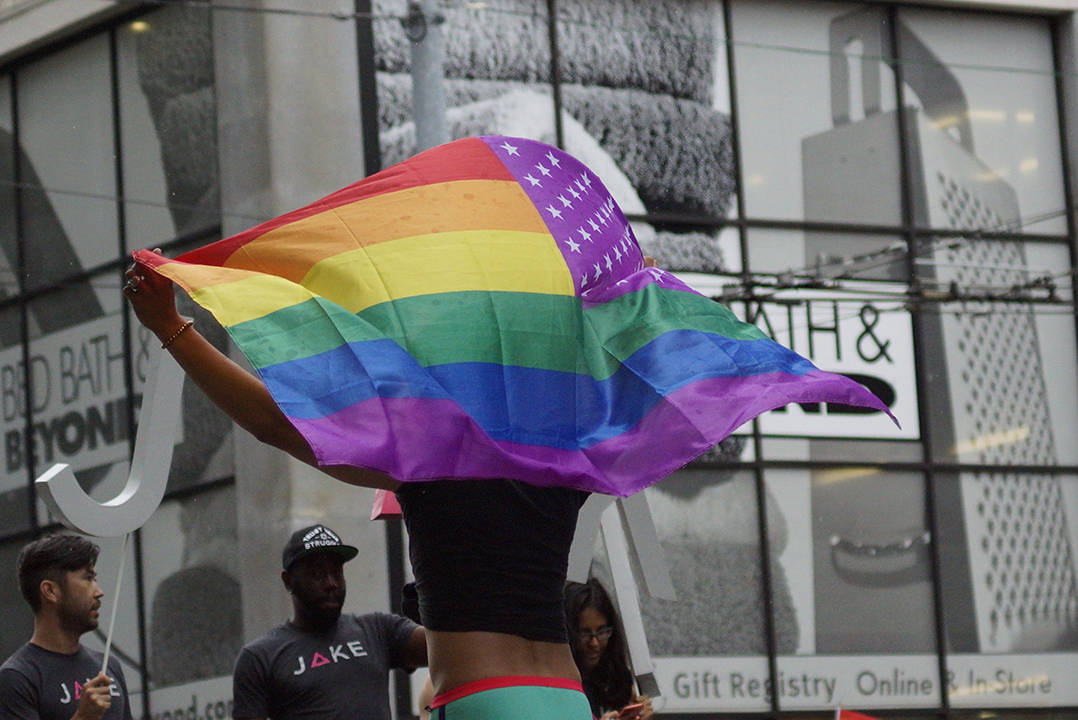Yesterday, The Seattle Times published a story that stopped the city in its tracks: A lawsuit has been brought against Mayor Ed Murray, accusing him of paying drug-addicted teenage boys for sex decades ago, and two other men are making similiar accusations. Murray, who denies the allegations, is the state’s highest-profile openly gay politician, and the allegations against him—regardless of their veracity or whether and how a jury decides the lawsuit—have rattled the city’s gay community to its core.
“I don’t think we’ve run into anything like this before in the LGBTQ political community in Seattle,” says Michael Maddux, Democratic politico and former city council candidate. That’s partly a testament to how much ground Murray has broken as a politician: Seattle’s LGBTQ community hasn’t had a situation like this before in part because openly queer public officials are a relatively new phenomenon. Maddux is worried about how that community may react—for instance, by victim shaming. “I hope that regardless of the veracity of the allegations, we need to not attack and revictimize people who were victims of sexual assault and rape,” he says. “I fear that will happen—that some will line up to turn and attack the man involved in this,” who Maddux notes has suffered from addiction and trauma for much of his life.
Murray’s accomplishments on LGBT rights can hardly be overstated. A protege of Cal Anderson—Washington’s first openly gay legislator—Murray managed to convince local Democrats to appoint him to the state House when a seat opened up after Anderson’s death in 1995. He spent eleven years there and then another eight in the state senate. Along the way he managed to pass both the Anderson-Murray Anti-Discrimination Law—which has paved the way for, among other things, bathroom access for transgender people—and the bill establishing gay marriage. He’s Seattle’s first openly gay mayor.
“Like many people, I’m feeling overwhelmed” by news of the allegations, says Danni Askini, executive director of the Gender Justice League, which is fighting to preserve the rights extended by Washington’s Anti-Discrimination Law. “I haven’t really heard a lot of conversation within the LGBT community” in immediate response to the allegations. “I think it will take some time for it to percolate. …There are a lot of potential landmines here, both in reinforcing homophobic narratives” about gay men all being pedophiles and, on the other hand, in victim-blaming.
Many other people reached for this story would not go on the record.
One old-timer who lived on Capitol Hill during the 1980s, who asked that his name not be used for reasons of political fealty, said that while he doesn’t know anything about the specific allegations against Murray, the kind of relationship described in the lawsuit—that is, an older man paying an under-age teenager for sex—“would have been very consistent with [Seattle gay culture in] the ’80s.”
This was caused in part, he says, by “the closet and how people could interact.” With an entire population (gay men) sanctioned into the shadows, there was no social mechanism for enforcing the age of consent.
However the case may turn—and, again, the accusations are just that at this point, accusations—Askini says its important to show support for victims of sexual assault, for whom the Murray story may be particularly hard to process.
“Given how high profile this is, that’s one of the most important things they can do right now,” she says. “The story is incredibly triggering.”
cjaywork@seattleweekly.com








